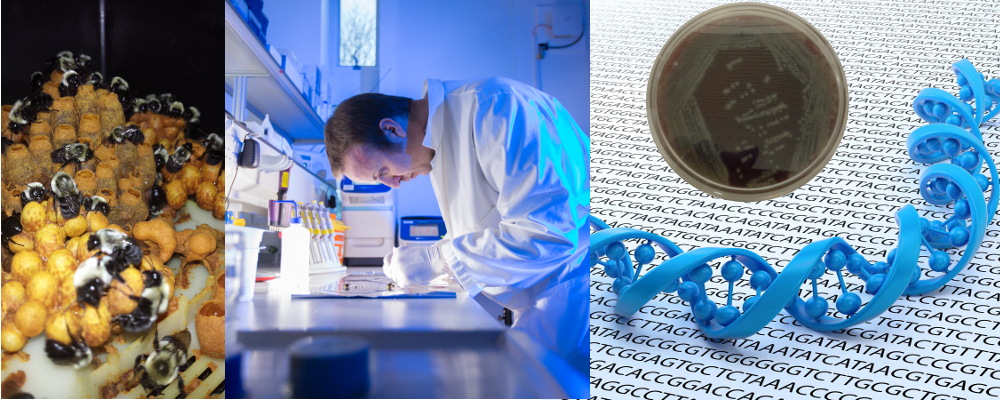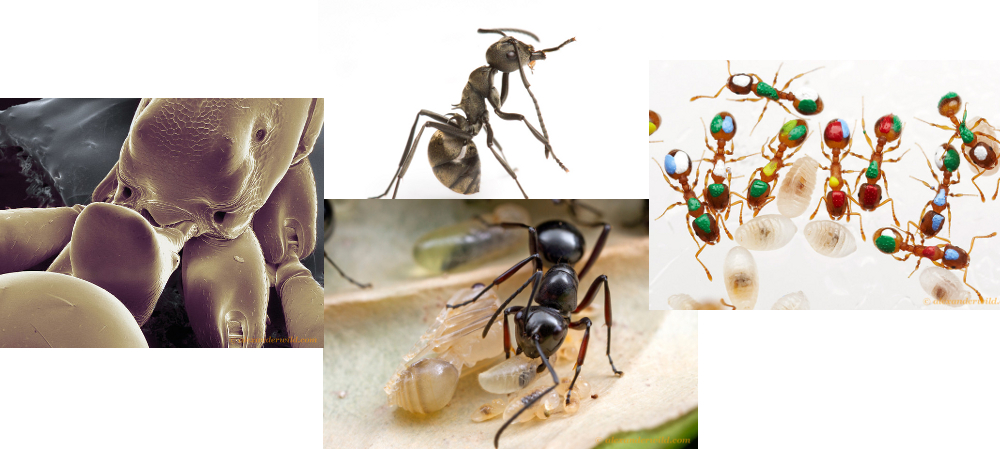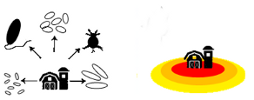Research

We study of the interactions of microorganisms with their environment, each other, and plant and animal species. This includes the study of parasites and symbionts and the interaction of microbes with anthropogenic effects such as agrochemical exposure and climate change.
Much of our research is focused on the parasites and wider microbial community (microbiome) that are associated with bees. Here is a list of ongoing research, followed by a list of other recurring research themes.
Microbial transmission dynamics: The health of an organism is largely governed by the actions of both beneficial and parasitic microbes acting at the same time. The initial transmissions and establishment of these microbes are therefore hugely influential events. By collecting data on these key events and their influence on the health of plant-pollinator communities, this research taps directly into land management, agriculture and ecosystem health. Work in this area has contributed to changes in import practices, screening techniques, and has informed policy on pollinator health.
Microbiome Engineering: The in-situ engineering of microbiomes is a new paradigm in microbial research, opening novel, exploitable frontiers in both community-scale genetics and microbial engineering. We are using a variety of techniques to explore the potential of the microbiome to improve bee health or even protect them against targeted stressors.
Gut-Brain axis: The concept of a gut-brain axis is relatively new and exciting field of neurobiology. Research has found multiple links between the microbiome and host brain activity. Our research is developing cutting-edge techniques to explore the gut brain axis, from utilising tagged bees and machine learning, to rearing germ-free bees and manipulation microbiomes.
Recurring research themes;
>> The line between commerce and conservation
Every year bumblebees are transported across the world for the pollination of crops. My work has identified that parasites could spillover from commercial bumblebees to native bees. Working with The Bumblebee Conservation Trust, Natural England, and Industry leaders, my work has positively influenced UK policy and industry practices for importing and rearing healthy bumblebees.
>> Individual and social Immunity
Social groups have increased potential for intra-group transmission of parasites. Social animals must therefore have effective resistance mechanisms against parasites. I am interested in these mechanisms and how they are deployed in both individual and social contexts.

>> Genetic basis of behaviour
The complexity of behaviour can be explained by looking at why it occurred (Ultimate causes) and how it occurred (Proximate causes). These proximate causes can be genes and proteins that are expressed within an organism during particular behaviours. Following enormous advances in technology and computational biology, it has become possible to study the proximate causes of ecologically interesting behaviours found in non-model organisms in nature. I am interested in exploiting such technology to investigate the proximate causes of behaviours.
